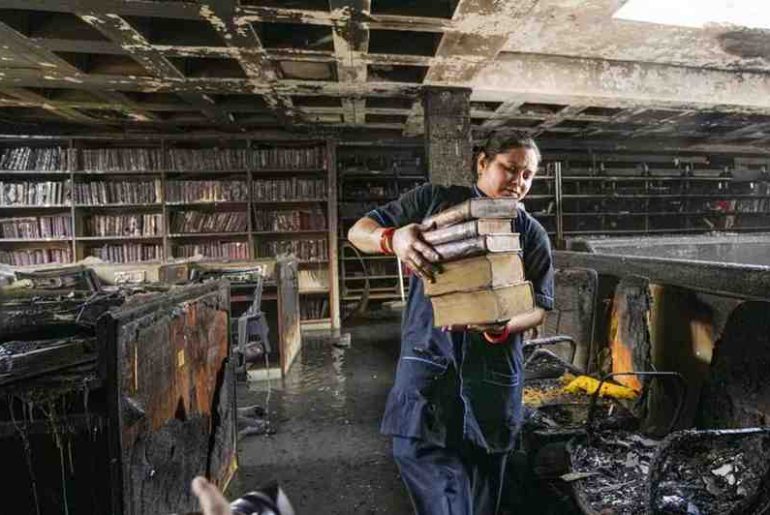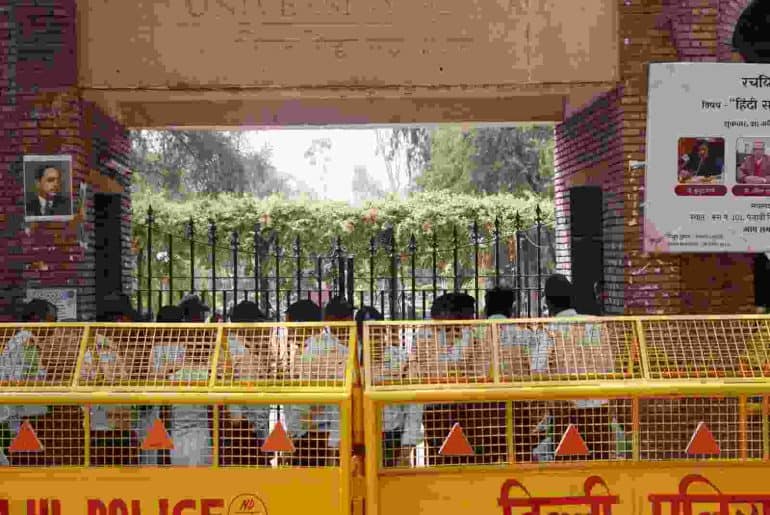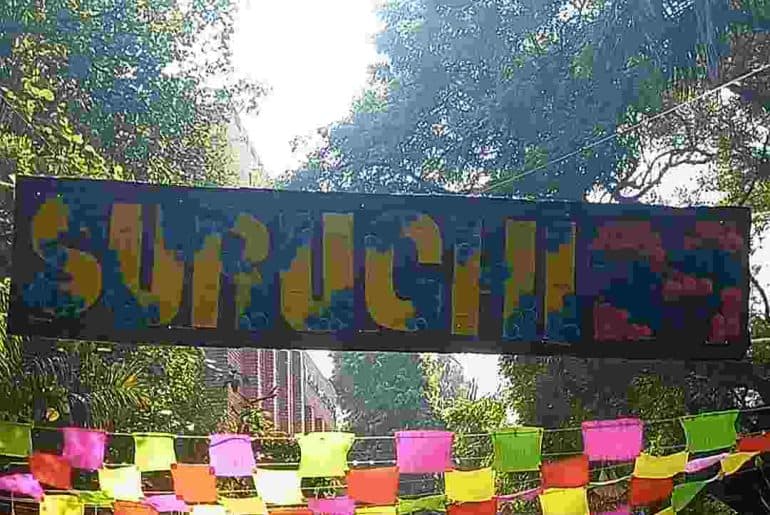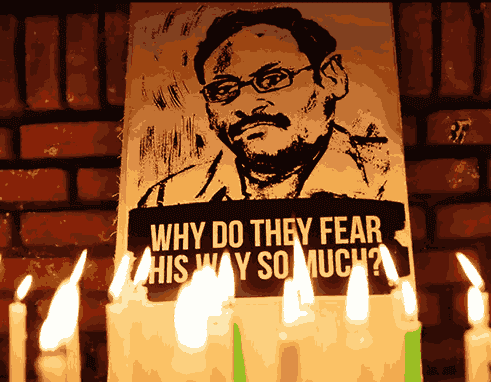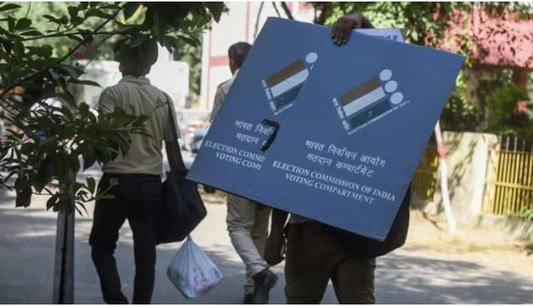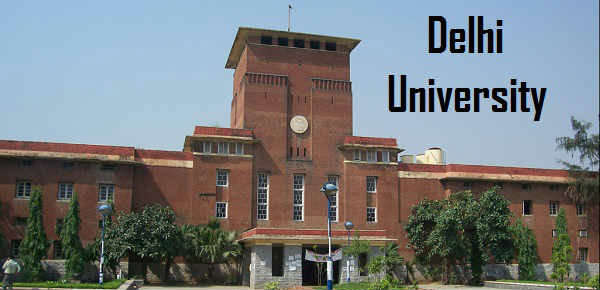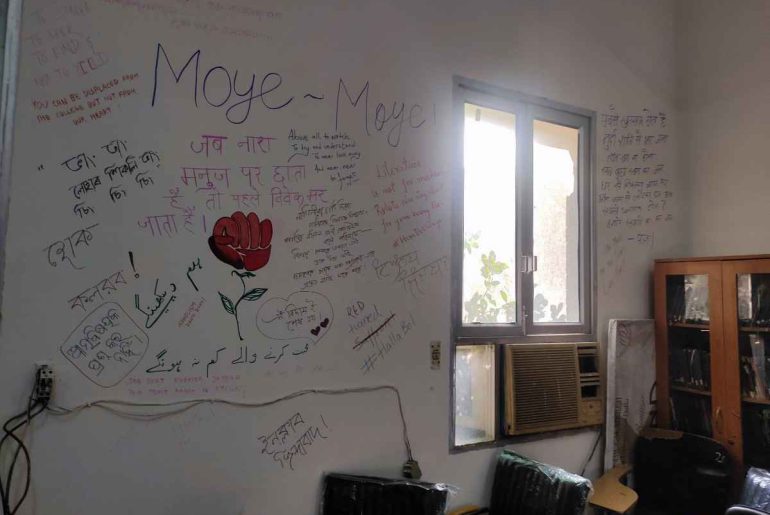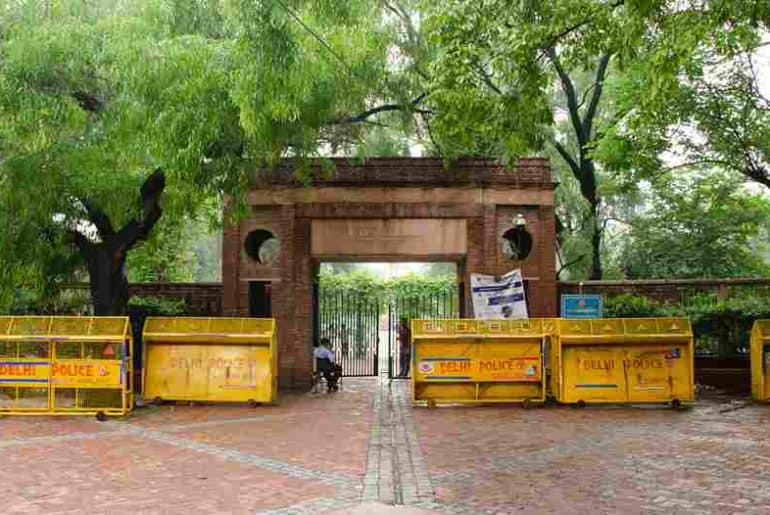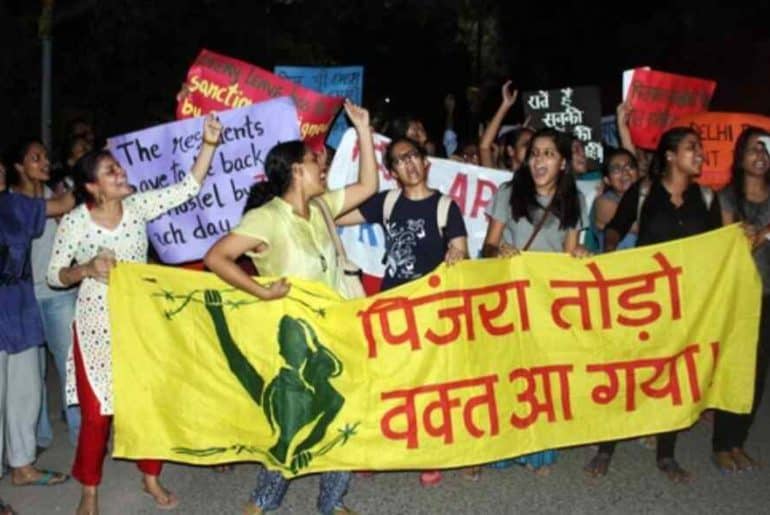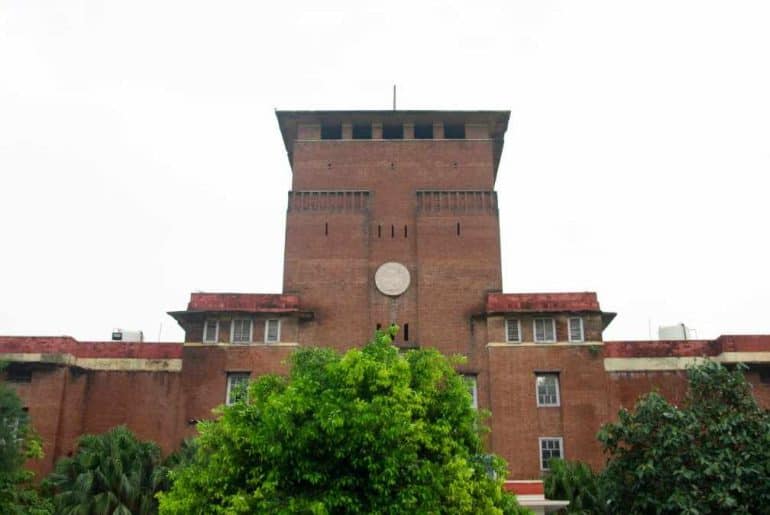Delhi University’s Sri Guru Gobind Singh College of Commerce reported a massive fire in the college library on Thursday morning, destroying over 3000 books and leading to the cancellation of the morning semester exams.
In Northwest Delhi’s Pitampura, a massive fire was reported at Sri Guru Gobind Singh College of Commerce, University of Delhi in the morning hours of Thursday, May 15th, 2025. According to the Delhi Fire Service (DFS) chief Atul Garg, the fire broke out around 8:55 in the morning and 11 fire tenders were rushed to the college who managed to bring the situation under control by 9:40 A.M. In response to the ongoing cooling operations, a senior fire official added,
Several window panes shattered due to the high flames, and the fire spread rapidly due to strong winds. Our teams responded swiftly and managed to douse the flames.”
Originating in the college library, the fire impacted the building’s first, second and third floors, extensively damaging the infrastructure and academic material. Reports state that though there were no casualties, over 3000 books have been destroyed along with the library’s online system being damaged. Although investigations are currently underway to determine the exact cause, a senior college official informed the Press Trust of India,
A short circuit in the library’s server triggered the fire, extensively damaging hundreds of books in the section that housed old books. The library is still filled with smoke, and a detailed assessment of the losses will be possible only once visibility improves.”
Sri Guru Gobind Singh College’s Principal expanding on the extent of damage added,
“Only the top floor of the library was caught in the fire. The books on that floor were damaged due to the blaze, but we kept old editions of books and those in less circulation on the top floor. The newer editions of books were on the ground and second floors. There was no damage to our archival section as it is not on the top floor.”
Although there is widespread damage, the library’s facility system is reportedly functional with the manual issuing of books to students amid the ongoing end-semester examinations of Delhi University. Around 400 undergraduate students were scheduled to take the examination during the morning session which was cancelled in lieu of the fire breakout. However, since the library was housed in a separate building, the examinations scheduled to take place from 2:30 to 5:30 P.M. were conducted after the handover by the fire department. In conversation with the Indian Express, Principal Jatinder Bir Singh further stated,
Since lights were to be cut off for the fire department to extinguish the fire, we postponed the exams scheduled in the morning. Afternoon examinations went on as usual. The controller of examination is yet to notify a fresh date for the exams”.
Recently, Delhi University’s Kalindi College reported a ceiling fall falling on the head of a faculty member causing serious injury. In light of such incidents outrage has sparked amongst students who raised concerns of student-faculty safety and welfare over the deteriorating condition of the infrastructure of DU colleges. In a statement released by the National Students’ Union of India (NSUI) on 15th May, they questioned the negligence and demanded immediate safety audits in all colleges throughout Delhi University.
Read also: Thefts and an Unaccountable Administration Raise Concerns at Kirori Mal College
Image Credits: The Telegraph
Aaratrika Ghosh

